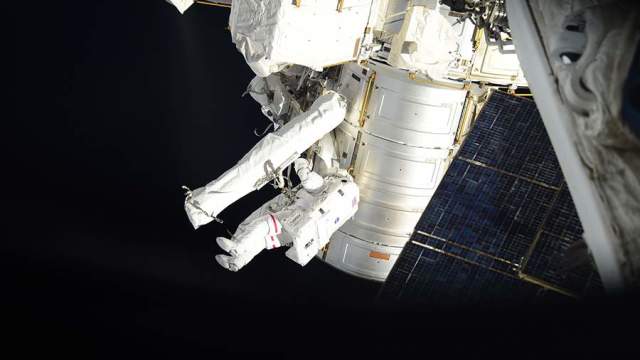The construction of the new Russian space station may begin in 2027. At the same time, Russia will continue operating the Russian segment of the International Space Station (ISS) for two years. This was told on August 30 by the general designer of the Rocket and Space Corporation (RSC) Energia, cosmonaut, twice Hero of the Soviet Union Vladimir Solovyov.
"The Angara [launch vehicle] is being created, but as far as my colleagues explain to me, with its help we will be able to launch new modules in 2027, when, as we hope, the infrastructure at the Vostochny cosmodrome will be ready, "Solovyov said in an interview with RIA Novosti.
Flights to the ISS until 2028-2029, according to him, are needed to "close the junction" between the completion of the ISS and the start of operation of the new station.
The first module of the new station will be the Scientific and Energy Module (NEM), intended for the ISS.
Earlier on Monday, the head of Roscosmos, Dmitry Rogozin, intends to present a report to Russian President Vladimir Putin on the prospects for creating a new Russian national orbital station.
On July 31, the Council of Chief Designers, during a meeting of the Presidium of the Scientific and Technical Council, concluded that the further operation of the Russian segment of the ISS after 2024 creates additional risks. This is primarily due to the aging of a significant part of the station's equipment.
It was proposed to complete the operation of the ISS by 2028 and create a national manned space complex in low Earth orbit — the Russian Orbital Service Station (ROSS).
The company pointed out that the station should become an evolutionary step in the development of a program for the study and development of the Moon, flights to Mars and the implementation of innovative scientific and technical programs in space.
Earlier, he also clarified that the creation of a new Russian orbital station will cost less than "tens of billions of rubles". It takes about four years to finalize the ready-made basic module for the future station. After that, a new node module will be added-a berth and a module with gyroscopes.
On June 3, the head of Roscosmos said that four Angara launch vehicles will be delivered by the end of this year, while two of them will fly already in 2021.

